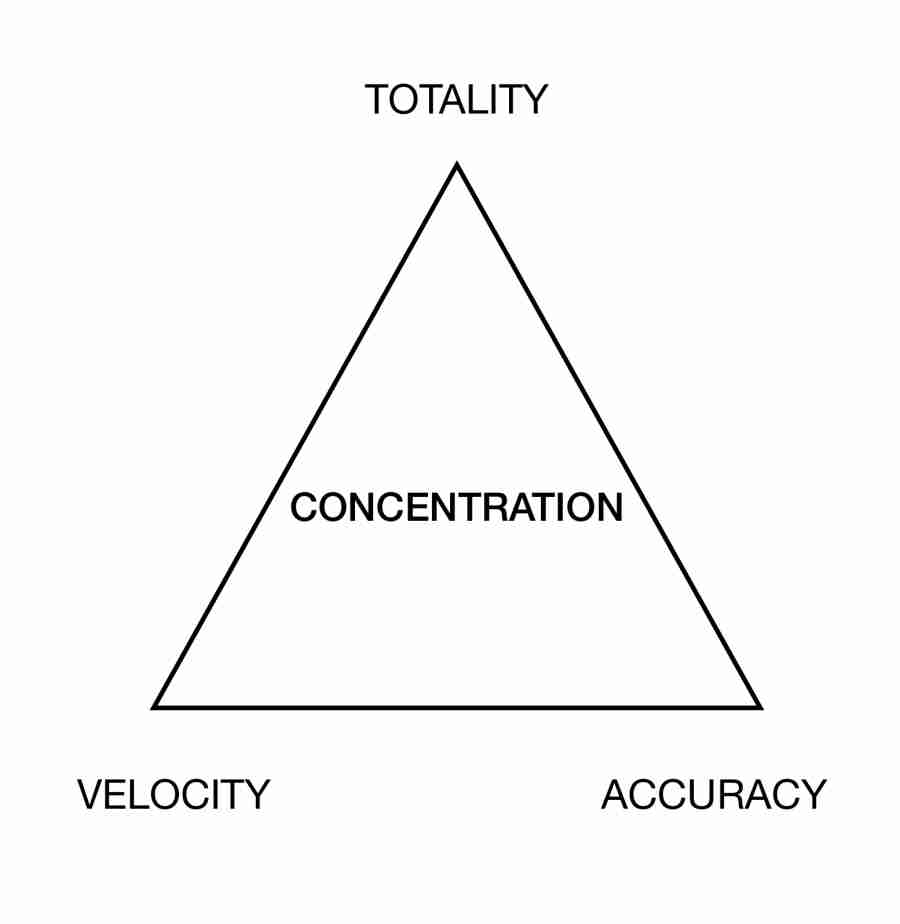
The learning triangle is a method that, if applied literally, will change the way you study piano forever.
At the center of this triangle there is a mental "space" where concentration is at its maximum and no negative thoughts are able to distract you or disturb your performance.
The angles of the triangle represent the main elements of the study.
The first angle means to play the part in full. By this we mean that if you are studying a
piece the whole part is the whole piece, if you are studying maybe the first eight
bars the whole part are these eight bars, or you are studying an exercise maybe it
is the first part or a small section of this exercise.
The second angle is playing at speed. By this we mean playing at the actual speed
at which you will perform the part, exercise or song.
The third angle instead means to play correctly. By this we mean playing the correct
notes, with the correct rhythm, with the right dynamics and with all the musical and
expressive elements.
You should practice by considering only two angles. For example let's take the top corner with the bottom right corner: you can play the
whole part, the whole example and then play it correctly but you can't expect to play
it at full speed. So when you study you will have to concentrate only on these two
aspects and consequently you should play at a reduced speed.
In the second option you can play at full speed and then play correctly, but you can't
expect to play at full speed without making any mistakes. So you'll need to take a
smaller portion, small enough to get it all right at top speed.
In the third case maybe you want to train the speed, so you want to play fast and
you want to play the whole part quickly. But you will have to sacrifice correctness,
sacrifice something of the part because training speed requires a certain fluency, a
certain spontaneity. To develop it you have to try to play the whole part quickly but
without letting yourself be conditioned by the fact that some notes or some
passages will be bad or even wrong, some passages will be inaccurate or you will
not have a good dynamics or a good sound. Remember that when you train speed
you are training your body to assume a certain state, a certain spontaneity.
So when you study you must always have the learning triangle in mind. In this way, before sitting down you will know exactely what you want to train, before any session you will be able to define how you want to practice and which aspect of those represented in the triangle you want to train more, and then continue to work in rotation.
From today, therefore, start studying with greater awareness and concentration!